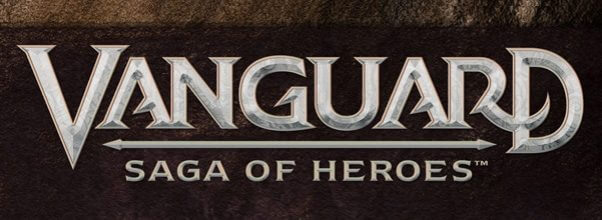As a frequent participant over at the Vanguard: Saga of Heroes discussion forums it’s no secret that I have been questioning Sigil’s decision to use the culture and geography of the real world as inspiration for their much-anticipated new online world of Telon.
Brad McQuaid the Chairman & CEO of Sigil was kind enough to respond to one of my posts in a thread entitled: The criticism thread. Pull no punches. In the interest of fairness, I would like to reproduce the exchange and respond with my comments.
Here is the exchange starting with my post:
/fanboy mode off
My main concern is the quality of the actual world we are supposed to be adventuring in. The name Telon sounds too sci-fi to me and should be more organic. As I’ve mentioned in previous posts I disagree with Sigil emulating real world cultures to the degree they have done so in Vanguard–Europe, Asia, Arabia. There’s too much reality and not enough fantasy in the descriptions of the cultures and continents that I’ve seen. Asheron’s Call (another Microsoft online gaming venture) tried the very same thing with 3 races of humans and failed to capture the imagination of the online gaming world by offering somewhat bland politically correct fare.
Much of the architecture in concept art and videos I’ve seen is also too much of a carbon copy of Planet Earth. Seeing Moorish domes in Qalia reminds me too much of the real world when I should be immersed in a fantasy world. I’d like to see more emphasis on art and less photo-realism. EverQuest for all it’s pixel-challenged simplicity had character and personality that Vanguard has yet to demonstrate in the screens and videos I’ve seen.
Sure I realize that creating an online world from scratch is no easy task. Yet you need to do more make your world original and not so derivative. Take a lesson from World of Warcraft. The Blizzard art team did an superb job of synthesizing some real world cultures with fantasy and produced amazing homelands for the Tauren (native american inspired), Trolls (voodoo island inspired) as just two examples. Sigil I urge you to “fantasy” up your races, cultures and deities before release. Don’t be afraid to use caricature and exaggeration to make your world come to life.
Two questions that every potential subscriber to Vanguard will have to ask themselves:
Do I really want to spend the next few years of my life to be a part of this world of Telon?
Is this fantasy world of Telon compelling and original enough to make me care about the lore, races, cultures to play an avatar?
Frankly I’m not sure I want to play in a world that is so close to our own here on good old Planet Earth. Fantasy worlds need to be wondrous worlds of conflict, magic and adventure that capture the imagination of players. I want to see a living, breathing virtual world of war, peace, famines, prosperity, plagues, revolutions and then some. Sigil give me a compelling reason to want to play in “your world” and call it home. Elevate me, transport me, immerse me, challenge me, surprise me and dazzle me! If you can do these things then you will have earned the right to call yourself a 3rd-generation MMORPG.
/fanboy mode on
Brad’s response:
This may be a strange way to address your concern, but here goes:
I would be there agreeing with you totally and voicing the same concerns were your assumptions valid. And this is something that’s had me concerned: we knew we could make a western european high fantasy world, a tolkien-esque fantasy world, and there wouldn’t be much worry that we were copying the real world or Arthurian legend or what have you — that the influence could be there, but that it could still be a distinct world.
But because pulling from other themes and mythology from other parts of the world hasn’t been done as much, some of you have concerns.
I encourage you to look at fantasy novels and paper and pencil worlds, and think outside of the MMOG box.
Take Forgotten Realms… Toril has a lot of different lands with themes that are based to some degree on real world mythology, but it’s still it’s own fantasy universe with its own identity.
from Faerun Information
Faerûn
Unapproachable East, one of the source books for the Faerûn continentFaerûn is a fictional continent, the primary setting of the Dungeons & Dragons world of Forgotten Realms. Faerûn is one of at least three continents on the world, known as Toril (more formally, “Abeir-Toril”), the others including Kara-Tur (original setting of the D&D Oriental Adventures campaign setting), and Maztica, home of a tribal, Aztec-like civilization. The subterranean regions underneath Faerûn is the Underdark.
This is one of the reasons I love Forgotten Realms — you have traditional western european fantasy along the Sword Coast with Waterdeep, etc., but you also have exotic lands that draw from the Oriental Adventures, Aztec themes, etc.
With Telon we want to bring this kind of richness to MMOGs — it’s time to go there, IMHO — part of being ‘third gen’ is taking these virtual worlds farther — why should pencil & paper games draw from so much more in terms of setting and themes and not MMOG worlds?
Likewise, we are very influenced by certain fantasy novels which have also presented worlds that draw from more than just a western european setting.
As I mentioned elsewhere, look at what Feist and his friends did with Midkemia and other locations in that universe.
Check out Midkemia — the empire of Kesh certainly draws from Arabian Nights themes and settings. And Kelewan is certainly Oriental in theme.
So I think there is not only precedent in, say, D&D and in fantasy novels, but also that such precedence is very cool and adds a lot of richness. These other fantasy worlds have also shown that this can be done without making carbon copies of the real world or its mythologies — that one can pull thematically from a variety of mythologies yet still be different enough that it’s not just some cheap copy, and that it still feels like a different world and not the real one, even though real world settings and mythology has been used to draw ideas from.
Our dream is develop Telon similarly — MMOG worlds shouldn’t be limited in these areas any more than fantasy worlds made for different mediums.
Brad has made a thoughtful, compelling counter-argument and has backed it up with some great examples from Forgotten Realms Faerun and Feist’s Midkemia. Although I still maintain many of my objections to Sigil’s decision, this topic has made me question and examine my own admittedly euro-centric notions of fantasy worlds and their place in MMORPGs. Still, the ultimate purpose of fantasy virtual worlds is to provide pure escapism to the user. The sense that I’m playing in a unique, substantively different world than the one I live in is critical in establishing the immersion needed to facilitate that escape. Immersion is very hard to create and sustain. It can easily burst like a party balloon. Each of us has a level of immersion that we absolutely must experience to suspend our disbelief. My threshold may be frighteningly higher than most hence my discomfort with Sigil’s Qalia and Kojan.
I am not entirely opposed to using real-world geography and culture as inspiration for fantasy world equivalents. For me, it’s a question of degree–finding the right amount of derivative inspiration to mix with the new. More and more I’m realizing that creating successful online worlds is an art form akin to the skill that a master chef uses to create an award-winning dish. A carefully considered blend of tastes, ingredients and textures to get the perfect result. Too much salt or spice and the food is ruined.
Another thing this issue has done has made me become more aware of the expectations that we as fans can project on upcoming online games. Everyone has their own vision of the perfect MMORPG. We online gamers are a picky lot. We come to discussion boards with shopping lists of what we want and protest when we see features that we don’t want. Then as the release date looms ever closer the game of our dreams morphs into the reality of the designers and developers. It’s easy to get disappointed and make hasty judgments based on scant information and incomplete sampling of the data. Perhaps I fell victim to this as my previous article was a bit harsh on Sigil and Microsoft.
As someone who firmly believes in the future of online worlds I feel it’s very important that Sigil succeed with Vanguard. The video game industry needs to see that a company like Sigil can prosper and still be a standard bearer of innovation, excellence and integrity.
I would like to thank Brad for his thoughtful reply. It’s given me ample food for thought. It’s also refreshing to see a CEO of a company get his hands dirty in the trenches and defend his design decisions by speaking with passionate gamers on discussion boards. That kind of spontaneity and transparency is a rare commodity in an age where most CEOs and devs cringe at the thought of communicating with their playerbase.
–Wolfshead




